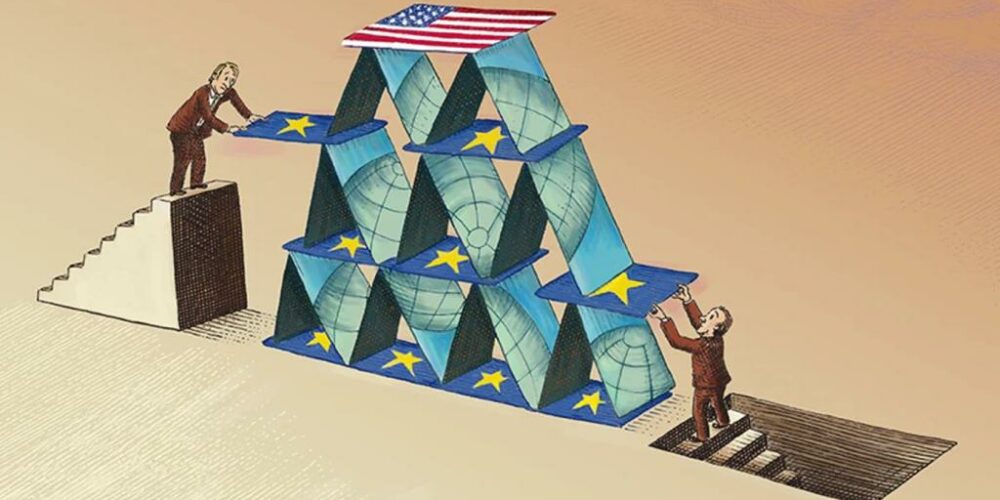Geopolitically and militarily, the EU has never been a big player. Contrary to some great-power fantasies in the Brussels political bubble, it is merely an appendage of the USA. Economically, too, the cartel of states is barely getting off the ground in the face of fundamentally conflicting national capital interests.
This is also confirmed by a new study published by the conservative Institute of the German Economy, the Institut der deutschen Wirtschaft (IW). “The EU’s position as a global economic superpower is increasingly at risk,” it says.
On the one hand, the many crises of the last two decades—the financial crisis, the euro crisis, the refugee crisis, Brexit, Corona, and now the war in Ukraine—are responsible for this. However, these problems are also home-made; after all, the EU has repeatedly proved to be completely unfit for crises, and national capital interests have clashed time and again.
In the financial crisis, homage was paid to the banks; in the euro crisis, the industries of the southern countries were sacrificed; there was no European co-operation even in the refugee crisis; there was no effective fight against pandemics so as not to disrupt the profit hunt. And now the Ukraine war is being further fuelled by arms deliveries.
The IW researchers see the second important reason for the economic decline of the EU in the rise of the competition. The US and China, in particular, “have been able to outpace the EU in a number of relevant competitive factors,” they say. The EU’s share of global economic output has fallen because other economies have grown faster. China’s economic catch-up process in particular is unparalleled.
The EU countries are also falling behind internationally in terms of private household consumption expenditure. This is hardly surprising, given that all economic and financial crises have been met with drastic cutback programmes, while pressure on wages has been steadily increased in order to boost competitiveness on export markets. This has been at the expense of purchasing power, which means that people are consuming less and less.
Meanwhile, China is lifting millions out of poverty through higher incomes, and domestic demand is also part of the economic strategy in the USA. However, reversing the austerity measures is not what the authors of the study recommend. Rather, their proposals are aimed at making the EU more attractive as an investment location and thus attracting more capital from other regions of the world.
The EU’s own “location index” clearly shows that the USA is the more attractive investment location. It would be difficult to catch up in terms of the availability of natural and financial resources. What could be remedied, however, is Europe’s “chronic lag in corporate financing and skilled labour.” With reference to the EU Commission’s DESI or digital index, the report also complains about problems in the digital agenda. According to the index, the EU performs worse than the USA in all the indicators considered. And the lead over China is rapidly melting.
“How well the transformation to decarbonised, material-efficient and resource-efficient production succeeds and how quickly and extensively the European single market can be deepened will be of great importance for the future competitiveness of European industry,” it concludes.
Paradoxically, these researchers believe the solution is more co-operation between member-states, despite the fact that this has not happened in any of the previous crises. In other words, the descent seems unstoppable.






